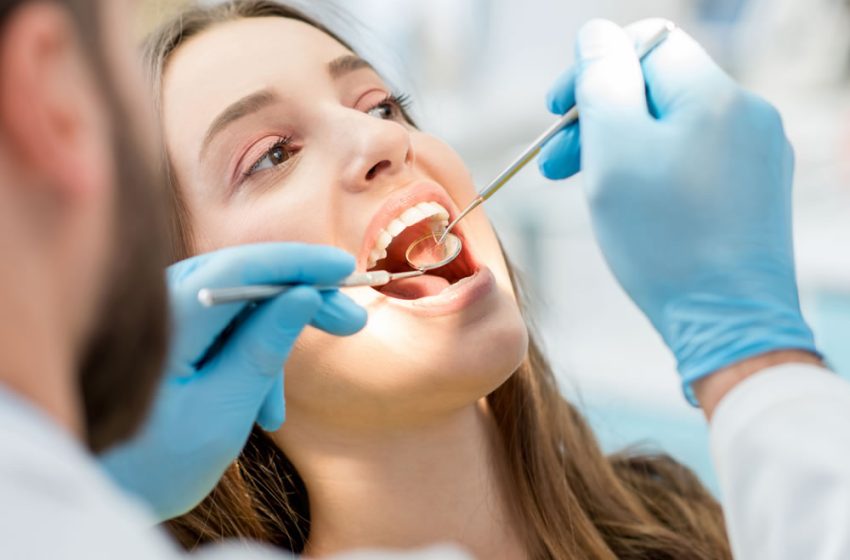Tooth Trouble? Here’s When You Need an Emergency Dentist

A toothache or dental problem can strike without warning, causing significant discomfort and anxiety. In such moments, many people are left wondering, “Is this serious enough to visit an emergency dentist?”
Dental issues can range from minor discomforts to severe problems that require immediate professional intervention. Knowing when to seek emergency dental care can save your teeth and alleviate pain faster. Here’s a comprehensive guide on when to call an emergency dentist Joondalup and why it’s crucial to act swiftly.
What Is an Emergency Dentist?
An emergency dentist is a dental professional trained to handle urgent dental issues that cannot wait for a regular appointment. These professionals are available after hours, on weekends, or even during holidays to provide relief for patients facing critical dental problems.
Dental emergencies can involve anything from intense pain, broken teeth, or knocked-out teeth to infections that could lead to further health complications if left untreated.
Understanding which situations require an emergency dentist and which ones can wait for a regular appointment will not only save time but also ensure your oral health doesn’t suffer further damage.
When to See an Emergency Dentist?
Several dental problems qualify as emergencies, and each requires immediate care to prevent worsening or permanent damage. Here are the most common situations that necessitate an emergency dentist visit:
-
Severe Tooth Pain
Tooth pain that is persistent, throbbing, or sharp could be a sign of a serious underlying problem such as an infection, tooth decay, or abscess. If you are experiencing unbearable tooth pain that doesn’t improve with over-the-counter pain relief, it’s time to seek emergency care. Tooth infections or decay that go untreated can lead to further complications, including the loss of the tooth or even the spread of infection to other parts of the body.
-
Knocked-Out Tooth
A knocked-out tooth, also known as an avulsed tooth, is one of the most time-sensitive dental emergencies. Quick action can make the difference between saving or losing the tooth permanently.
If you or someone you know knocks out a tooth, it’s essential to keep it moist (either in your mouth, in milk, or a tooth-preservation product) and head to an emergency dentist within 30 minutes to an hour. The sooner you receive emergency dentist Joondalup care, the better the chances of successful re-implantation.
-
Chipped, Cracked, or Broken Tooth
A chipped or cracked tooth can cause sharp pain and expose the inner layers of the tooth to bacteria, leading to infection or further damage.
While small chips may not always require emergency care, larger fractures and breaks, especially if they cause pain or expose the nerve, need immediate attention. Cracked teeth can be repaired with fillings, crowns, or veneers, but delaying care could worsen the condition.
- Dental Abscess or Swelling
An abscess is a painful infection at the root of a tooth or between the gums and teeth. It can cause swelling, intense pain, fever, and a foul taste in your mouth. Dental abscesses are serious conditions that need emergency dental treatment.
If left untreated, the infection can spread to other parts of your body, leading to more severe health issues like sepsis. If you notice swelling in your face, jaw, or gums, or if you have a fever alongside a toothache, see an emergency dentist immediately.
-
Lost or Damaged Dental Filling, Crown, or Bridge
While a lost filling or crown may not always seem like an emergency, it can expose your tooth to damage, increase sensitivity, and lead to infection. A damaged dental bridge can also affect your bite and cause discomfort.
If you lose or damage any dental work, it’s best to get it repaired as soon as possible. In the meantime, you can try using dental cement (available at most pharmacies) to cover the area temporarily, but professional treatment is necessary to avoid further complications.
-
Bleeding Gums or Mouth
While some gum bleeding after flossing or brushing could be due to gum disease or irritation, heavy or continuous bleeding is a sign that something is seriously wrong. If your gums are bleeding excessively or if there is any unexplained bleeding in your mouth, it may indicate a more significant issue like advanced gum disease, trauma, or even a systemic health problem.
Immediate evaluation by an emergency dentist is crucial to stop the bleeding and treat the underlying cause.
-
Injury to the Mouth, Jaw, or Teeth
Accidents happen, and sometimes they result in injury to the teeth, gums, or jaw. Whether from a sports injury, fall, or car accident, trauma to your mouth can cause broken teeth, jaw dislocation, or soft tissue damage.
These injuries often come with bleeding, swelling, and severe pain. In such cases, seeing an emergency dentist promptly is necessary to prevent lasting damage.
-
Object Stuck Between Teeth
If you have something stuck between your teeth that cannot be removed with floss or dental tools, it can cause irritation, pain, and potential infection. While this situation might not always seem urgent, failing to remove the object could lead to gum damage or infection.
If home remedies don’t work, an emergency dentist can help safely and effectively remove the object without causing further injury.
Why You Shouldn’t Wait
Dental issues that seem minor at first can quickly escalate into serious problems. Waiting to see a dentist increases the risk of losing a tooth or needing more extensive (and expensive) treatments like root canals, crowns, or extractions.
Infections can also spread beyond your mouth, causing severe health problems if left untreated. Seeking timely care from an emergency dentist can help you avoid long-term damage, alleviate pain, and restore your oral health.
Final Words
Dental emergencies require immediate attention to prevent further damage and maintain your overall oral health. Whether you’re dealing with severe pain, a knocked-out tooth, an abscess, or another urgent issue, seeing an emergency dentist Joondalup can make a significant difference. If you’re unsure whether your dental problem is an emergency, it’s always better to err on the side of caution and seek professional advice.
Your teeth and smile are invaluable, and timely treatment from an emergency dentist ensures that you don’t have to suffer longer than necessary.



